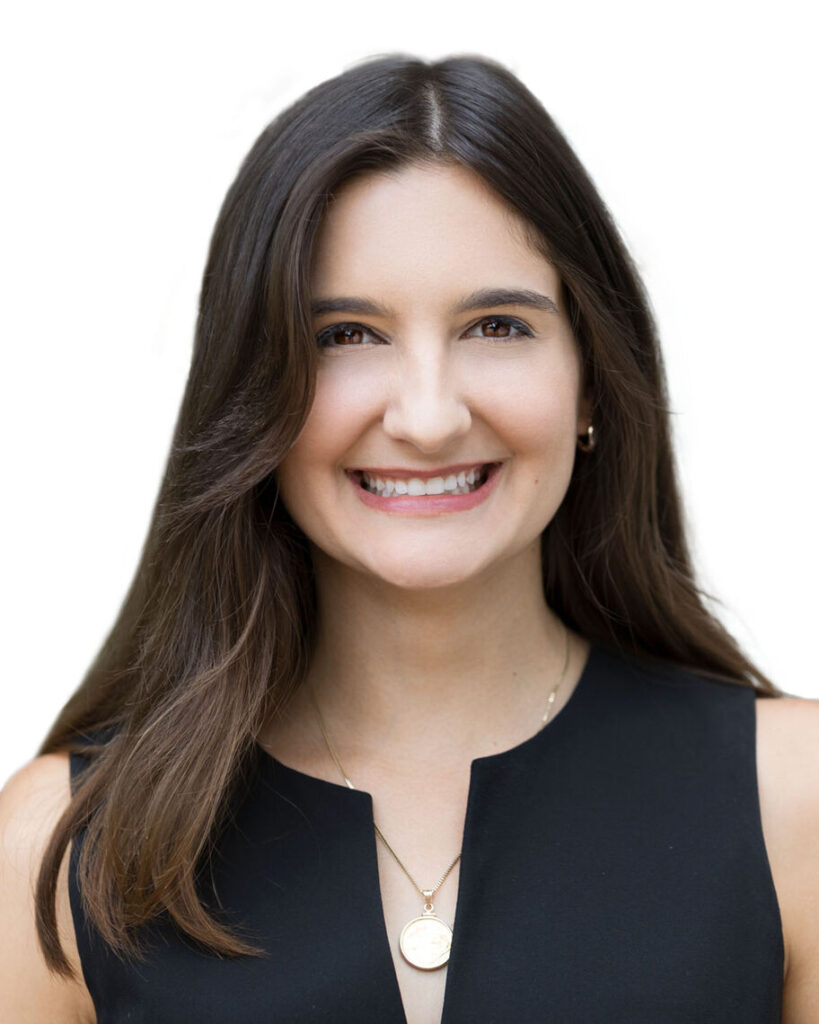- Fellow Highlights
LOOKING BACK AT THE FELLOWSHIP: PhD Student Laura Nicolae
2022 Paul & Daisy Soros Fellow Laura Nicolae is a PhD student at Harvard University.
Laura Nicolae’s early interest in public policy started at a young age, when her family members told her stories about the surveillance and restrictions on civil liberties that they experienced under the Romanian communist regime and the reasons for which they immigrated to the United States.
Laura graduated magna cum laude from Harvard University in 2020, where she earned a Bachelor of Arts with highest honors in applied mathematics and economics and was inducted into Phi Beta Kappa.
Growing up, Laura’s interactions with recent immigrants in her community exposed her to the financial hardships that immigrants face because they lack family connections and financial support in the US, making them particularly dependent on loans to invest in education or small businesses. These observations convinced Laura of the importance of ensuring access to credit and financial opportunities, which are key priorities for monetary and fiscal policy.
We caught up with Laura about what’s next and what the Fellowship has meant to her:
Where are you with your graduate program now? Whether you’re still in school or you’ve graduated, what’s the next step for you or what are the steps you’ve taken after graduating?
I just finished my third year in the Ph.D. in Business Economics at Harvard University. I published my first paper this year (coauthored with my advisors), on the evolution of the banking system over the past several decades and implications for bank regulation, in the Spring issue of the Brookings Papers on Economic Activity. In my remaining 2-3 years, I will be continuing to work on dissertation research.
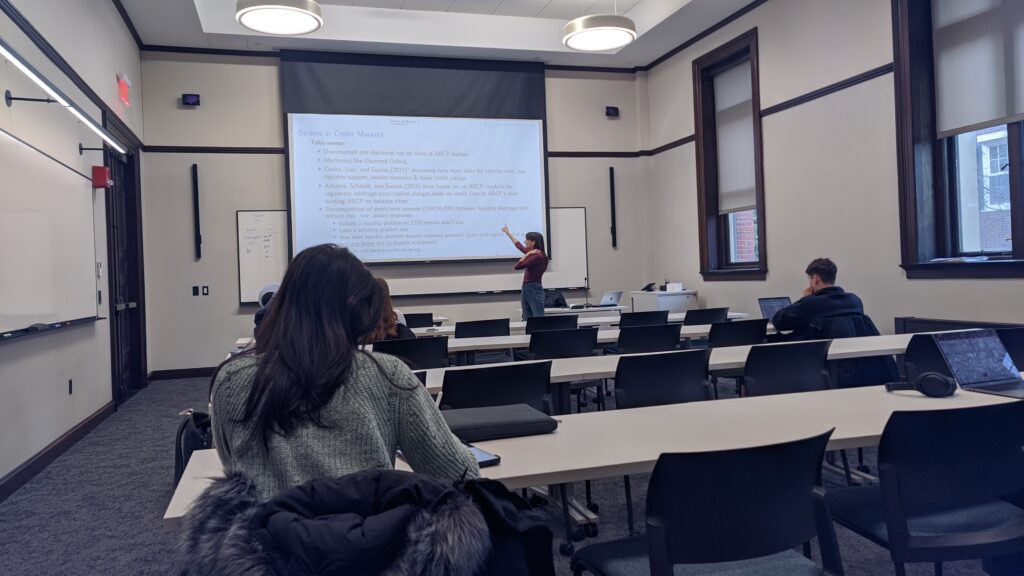
Can you tell us more about your graduate studies? What questions were are you pursuing? What is the main focus of your studies?
I study macroeconomics, monetary policy, and the banking system, especially focusing on how monetary policy affects the economy during a recession or inflation by changing interest rates. I currently have two projects that study how changes in monetary policy affect bank lending.
In the first project, I study whether banks make riskier loans and investments when short-term interest rates are low relative to long-term rates. In the spring of 2023, several large banks failed because they made many risky long-term investments on the assumption that interest rates would not rise, and their assets lost value when interest rates rose in 2021-2022. I hope that my research will be useful in helping monetary policymakers control banks’ risk-taking either through better regulation or through monetary policy strategies that account for the effects of low short-term interest rates on bank risk-taking.
My second project studies whether rising interest rates disproportionately harm small business borrowers by reducing their supply of bank credit.
How do you describe The Paul & Daisy Soros Fellowships for New Americans program to others?
To me, the Fellowship provided a very important community of newfound close friends, some who share my interests and some who have completely different ones. The Fellowship was a very important experience for me and shaped my experience of graduate school by providing these friendships and the broader cross-country community. I am in a Ph.D. program with relatively large class sizes–in the 20s–but even then there are so many other graduate students in a similar life stage right now, who live across the country and who I am so glad that I met.
Do you have any favorite memories from the past two years as a Paul & Daisy Soros Fellow?
The annual conference, and the many events in Boston that have allowed me to meet other older Fellows who I did not meet at the conferences, have been amazing! There are so many Fellows in Boston and we regularly gather to do activities like a pottery class, going to the Harvard art museum, etc. I have particularly made strong female friendships through these events and more broadly in my Fellowship class.
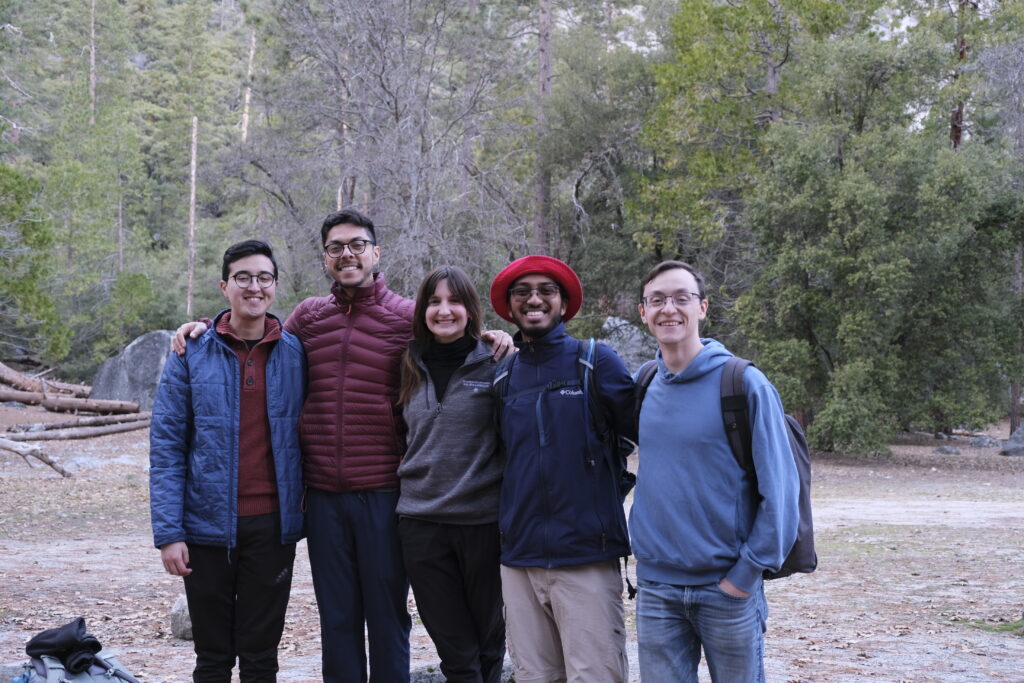
Has your sense of what it means to be a New American changed or shifted through the Fellowship experience and community?
My sense of New American identity has definitely been strengthened and changed through the Fellowship. In high school and college, my best friends were always groups of immigrants or children of immigrants, all from different places, but who absorbed each other’s customs, traditions, and even styles of cooking by creating our own communities of immigrant kids and becoming family to each other. The Paul and Daisy Soros Fellowship has recreated that experience for me in graduate school. We are all from different places and cultures, but we all learn about each other and have become family. ∎
Keep Exploring
-
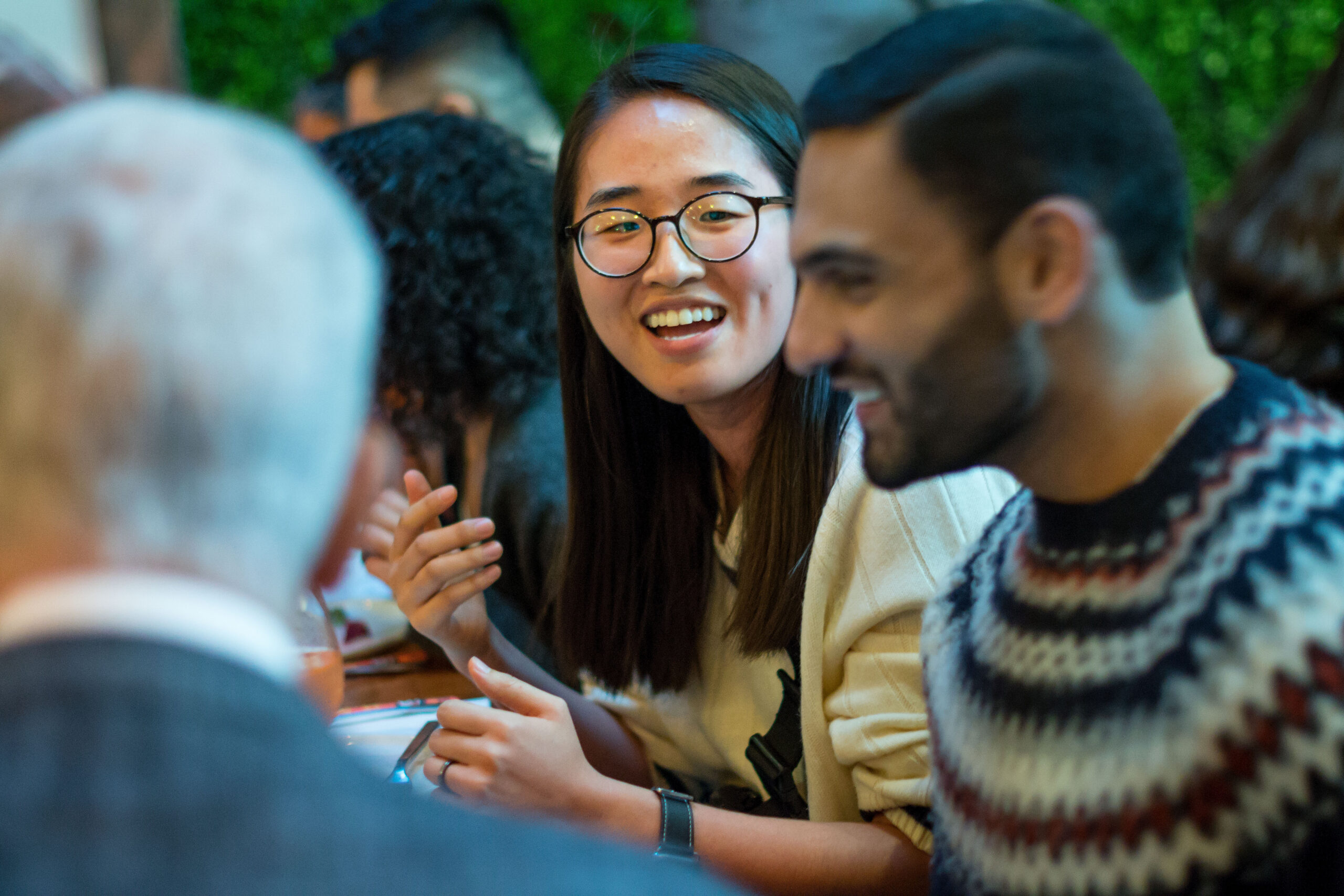 Read more: Kathy Ku Steps into Leadership as PDSFA Chair
Read more: Kathy Ku Steps into Leadership as PDSFA Chair- Board of Directors
- Fellowship News
Kathy Ku Steps into Leadership as PDSFA Chair
-
 Read more: Q&A with MD/PhD Student Silvia Huerta Lopez
Read more: Q&A with MD/PhD Student Silvia Huerta LopezQ&A with MD/PhD Student Silvia Huerta Lopez
-
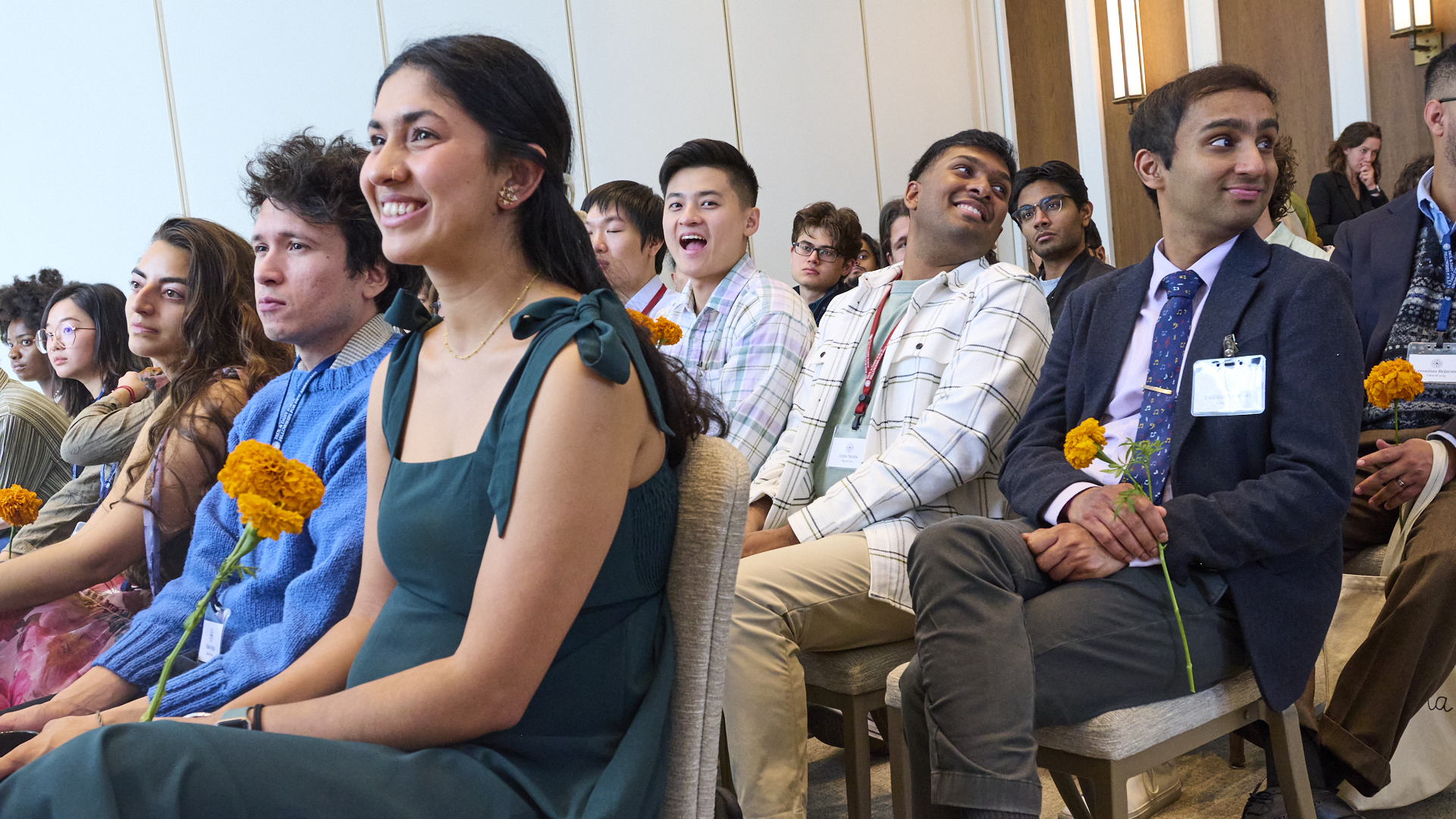 Read more: PD Soros Eligibility Guide for PhD Applicants
Read more: PD Soros Eligibility Guide for PhD Applicants- Applicant Information
PD Soros Eligibility Guide for PhD Applicants
-
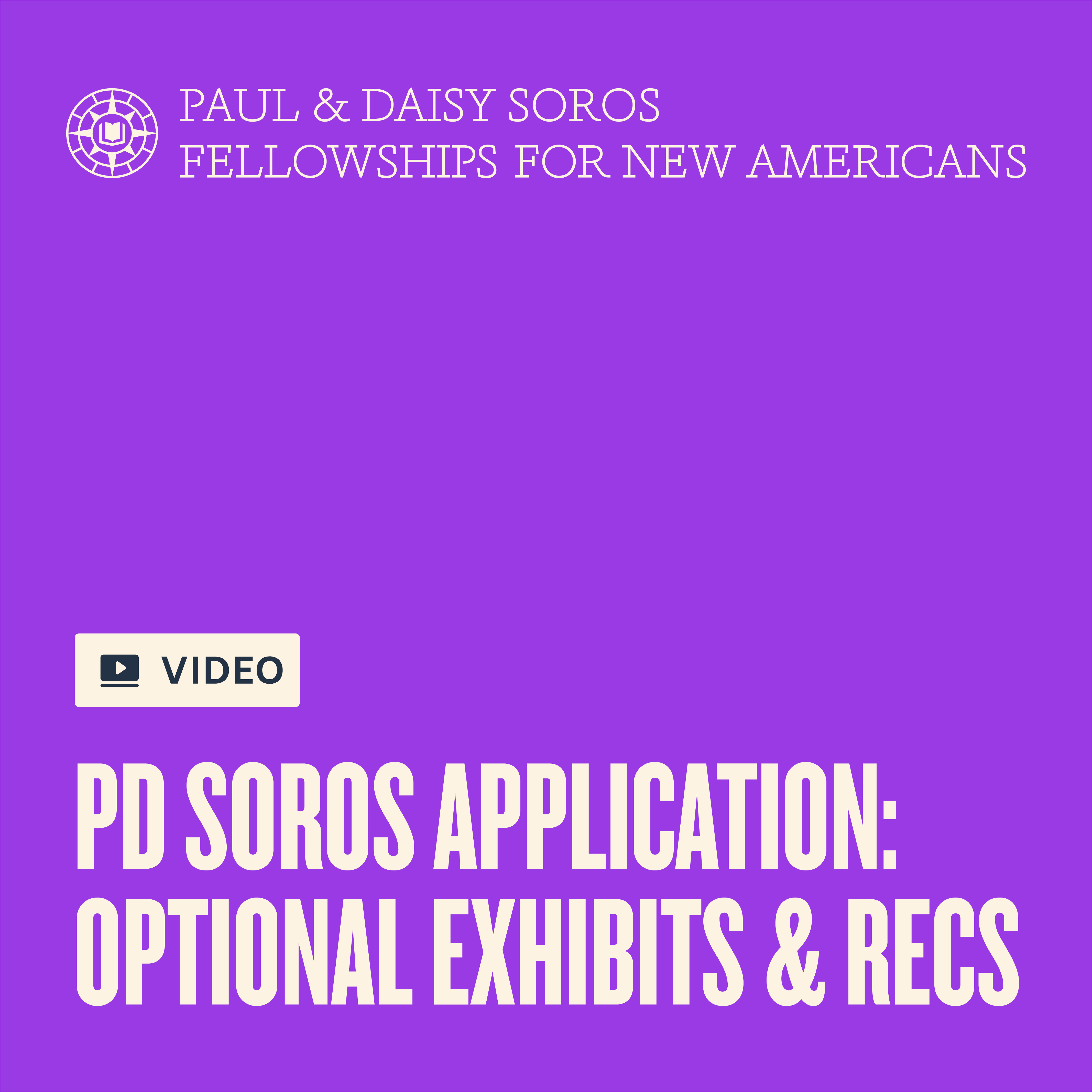 Read more: Watch: Optional Exhibits & Recommendations
Read more: Watch: Optional Exhibits & Recommendations- 2025 Information Sessions
Watch: Optional Exhibits & Recommendations
